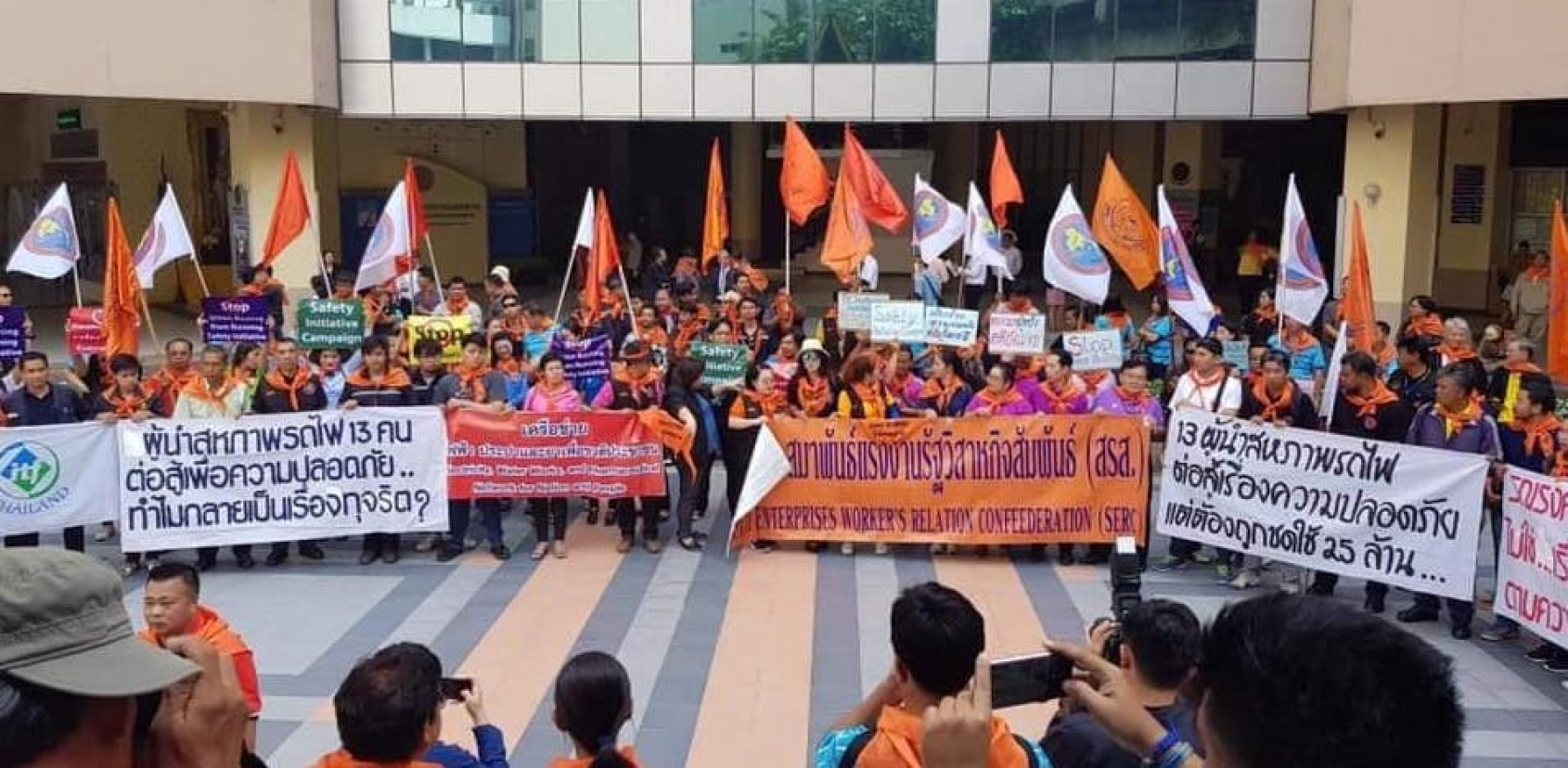On 9 July 2021, the ICJ, along with other civil society organizations, submitted a legal brief to the Bangkok Court of Appeal in the appeal by 13 trade union leaders of the State Railway Union of Thailand against their conviction on neglect of official duties charges arising from their involvement in a national rail safety campaign in the aftermath a fatal train accident in October 2009.
In their submissions to the Court of Appeal, the ICJ ― together with the International Lawyers Assisting Workers Network, the International Transport Workers Federation and the International Trade Union Confederation, with the support of the Solidarity Centre ― reviewed the nature and scope of Thailand’s international legal obligations relating to the right to freedom of association; the right to work; the right to the enjoyment of just and favourable conditions of work; and the right to a fair trial.
The legal brief details how the use of criminal sanctions against trade union leaders for legitimate trade union activities constitutes a disproportionate and unnecessary restriction of human rights guaranteed under international human rights and labour law, including:
- the right to freedom of association;
- the right to collective bargaining; and
- the right to the enjoyment of just and favourable conditions of
In 2019, the Office of the National Anti-Corruption Commission filed neglect of official duties criminal charges under article 166 of Thailand’s Criminal Code against the 13 trade unionists stemming from their refusal to drive trains that they alleged had faulty safety measures, and from the fact that they had called on officials of the State Railway of Thailand (SRT) to join a national rail safety campaign.
On 21 October 2020, the Bangkok Central Criminal Court for Corruption and Misconduct Cases convicted the 13 trade union leaders and sentenced them to three years in prison.
Background
The 13 union leaders have previously been targeted by a lawsuit from the SRT for alleged violations of the State Enterprise Labour Relations Act (SELRA) in connection with their conducting a peaceful occupational health and safety initiative in October 2009.
In 2017, after years of litigation and negotiations, the Supreme Court ruled that, subject to section 23 and 40 of the SELRA, union leaders may not call on drivers and technicians to desist from operating trains, which they alleged had faulty safety measures, as part of their rail safety campaign. By doing so, the trade union leaders had intentionally caused damages to the SRT and violated the SRT Regulation No. 3.5 regarding the Discipline and Punishments of the SRT’s Employees. The Court held that the SRT had lawfully dismissed the trade union leaders from their jobs. The union leaders were also fined 15 million Baht plus 7.5 percent interest per year (approx. USD 481,230). Their wages and pensions were subsequently docked nearly to zero in order to collect that fine.
Upon conviction, neglect of official duties under article 166 of the Criminal Code carries a maximum sentence of five years’ imprisonment and/or fine of up to 10,000 baht (approx. USD 312).
Download
Legal brief (amicus curiae) to the Court of Appeal in Thai and English

